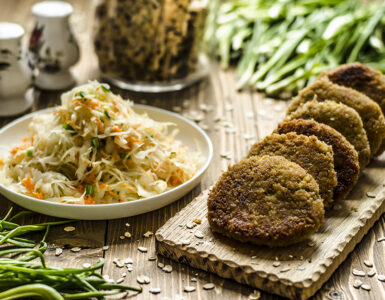People concerned about chemicals and other dangerous substances in the food they eat are increasingly opting for organic food such as vegetables, meats and other products. For others considering making the switch, one of the big questions is whether organic food is worth the higher cost.
There is plenty of evidence that organics contain more nutrients and pose fewer health risks. But families struggling to make ends meet sometimes have to choose between quality and affordability. The good news is that organic fruits and vegetables are not all that expensive, especially when purchased at farmers’ markets. Shoppers can save money by avoiding packaged products, and buying in bulk and cooking from scratch instead.
What Does ‘Organic’ Really Mean?
To be officially defined as organic, a food item must have been grown without pesticides, industrial fertilizers, genetically modified seeds, flavor enhancers, artificial sweeteners or chemical preservatives. Organic meat must come from animals that eat organic feed and spend some time outdoors. Antibiotics and growth hormones are not allowed.
What’s So Bad About Non-Organic Food? – Is Paying More For Organic Food Worth It?
Experts believe the nation’s increasing cancer rate is partly due to the toxic chemicals that Americans consume. Industrial farming involves more than 400 kinds of insecticides, herbicides and fungicides, the residue of which remains on food even after it is washed.
The chemicals prevent pests and diseases from ruining crops, make fruits and vegetables larger, and give processed foods longer shelf lives. However, studies have indicated that pesticides can cause developmental and behavioral problems for young children, and endanger the health of fetuses. Over time, consumption of these toxic substances damages the immune system, making people more vulnerable to illnesses and diseases.
Why Go Organic?
Preservatives and other dangerous chemicals are not needed in organic food, because it is usually grown and distributed locally. Organics contain higher doses of Vitamins C, D and E; more minerals such as calcium, magnesium and iron; antioxidants like beta-carotene and polyphenols; and other healthy compounds like flavonoids.
Corporate agriculture, with its heavy use of pesticides and fertilizers, deprives the soil of minerals. Organic vegetables, as well as wheat, have been found to contain 20-40 percent more nutrients than their industrial counterparts. Milk from organic cattle has 50-80 percent more antioxidants. In general, organic foods are 25 percent more nutritious, according to researchers.
As a result, those who eat mostly organic foods are less likely to suffer from a wide range of ailments, including cancer, heart disease, Type 2 diabetes, dementia, migraines, osteoporosis, autism, learning disorders and hyperactivity. They also tend to avoid food allergies, since the products they consume lack chemicals and preservatives. Because free-range, organically raised cattle are not fed animal byproducts, they do not get mad cow disease. Organic meat has fewer harmful contaminants than products from cows that spend their lives in cramped, indoor spaces.
Organic shoppers may pay more at the grocery store, but they often save money on doctors and medications. The high concentrations of antibiotics in many organic foods make people more resistant to ailments.
Another reason to go organic is the taste of the food. Too many people think nutritious products like vegetables have to be bland. That is not the case with chemical-free veggies which have not lingered for weeks in delivery trucks and stores. Much of the flavor of industrial foods is lost during packaging, shipping and storing. Anyone who has ever bitten into a fresh tomato knows the difference.
For some, choosing organic products is a socially responsible decision. They do not want to support agricultural practices that pollute the air, water and soil with cancer-causing chemicals. Organic farms do not require near as much water or energy, cause little erosion and nurture the soil. They do not harm birds and other animals that graze on the crops, which happens all the time in pesticide-laden fields.



